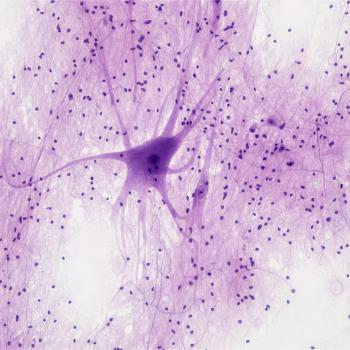So, yes, you are right, while my book emphasized continuity, there is also discontinuity. Indeed, to the extent that faith in Jesus' divinity and his Eucharistic presence is a supernatural gift, then 'disconnect' is as great as the distance between heaven and earth.
Meanwhile, in his review A Protestant's Differing Views on the Historical Eucharist, J. Carl Gregg wondered:
My question for Pitre would be if he has read Paul F. Bradshaw's 2004 book Eucharistic Origins, and, if so, how he accounts for Bradshaw's argument that the Eucharist's origins involved full meals (not small wafers and sips of wine), improvisation of the Eucharistic prayers, and many other diversities from the very beginning.
Pitre responds:
Great question, Carl. Yes, I have read Dr. Bradshaw's Eucharistic Origins, although his work and mine approach the question from completely different perspectives: he from the angle of patristic liturgical texts; I from angle of Jesus and ancient Judaism. Bradshaw's book is primarily a study later Eucharistic prayers and their relationship to the Institution narratives in early Christian writings outside the New Testament up to the fourth century. He has only a very brief treatment of the accounts of the Last Supper at the beginning of the book (10 pages), before launching into early Christian texts on the Eucharist well up to the fourth century A.D. He does not even attempt to discuss the historical question of what Jesus himself might have meant by such words in the context of first century Jewish eschatology or first-century Jewish liturgy, the Temple, the pilgrim feasts, and the Jewish priesthood and cult.
My book, by contrast, is focused primarily on Jesus, and my aim was to ask the historical question: How could Jesus, as a first-century Jew have ever uttered the words of institution—which are the earliest and most solidly attested words of his that we possess (Matt, Mark, Luke, Paul)—and what did he mean by them in that context? Using the Old Testament, the New Testament, and ancient Jewish sources, my book focuses on how Jesus deliberately tied his Eucharistic words and actions to the Jewish expectations such as the new exodus, the Passover of the Messiah, the eschatological manna, and Jewish liturgy, such as the Passover sacrifice and the Bread of the Presence. I argue that it was these connections, made by Jesus himself, that laid the foundation for the early Christian identification of the bread and wine as the body and blood of Jesus.
With that said, it should go without saying that the first Eucharist—the Last Supper—itself, involved a "full meal"—i.e., the Jewish Passover meal. But this in no way militates against the fact that first-century Jewish Christians like Paul saw the bread and wine of this meal as Jesus' body and blood, and spoke of this by way of analogy with Temple sacrifice (e.g., 1 Cor 10:15-22; 11:23-30).
To the contrary, it is precisely the Jewish language and imagery of the Last Supper, in the context of Jewish hopes for the messianic age, that provide one of the keys for understanding how belief in the real presence of Jesus in the Eucharist originated. In short, the question of how later Christian liturgical forms and diversities emerged was not on my radar, though I do include an important chapter at the end showing how various Church Fathers do in fact identify the Eucharist as the new Passover, the new Manna, and the new Bread of the Presence (Chapter 7).
If Jesus and the Jewish Roots of the Eucharist functions as challenge to Bradshaw's attempt to dissociate early Christian Eucharist from the Last Supper and his hypothesis that "only gradually did the understanding of the bread and wine as the body and blood of Christ come to predominate," then I consider that a healthy (though indirect) result. It seems to me that any book on the origins of the Eucharist needs to reckon first and foremost with Jesus in his historical context if its overall thesis is to be maintained.
Return to the Patheos Book Club for more conversation on Jesus and the Jewish Roots of the Eucharist by Brant Pitre.





